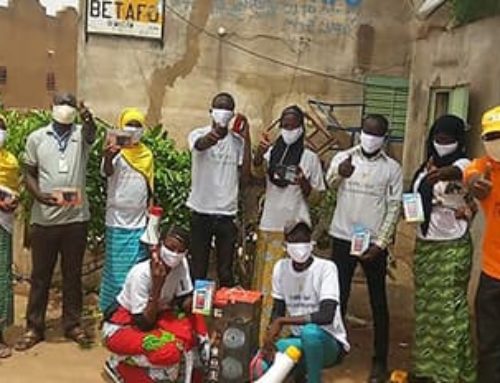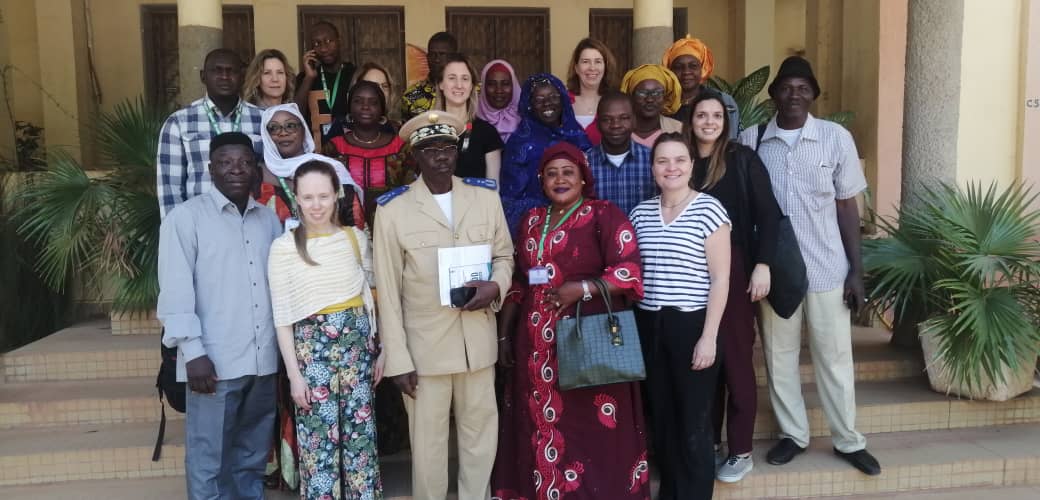
End January, The Dutch Ministry of Foreign Affairs, the Dutch Embassy in Mali together with the three child marriage alliances (Her Choice, More Than Brides and Yes I Do) visited project sites of Her Choice and the More than Brides Alliance in Ségou and Bamako, Mali. Rich discussions took place with our local partners, representatives of civil society, strategic partners such as Girls not Brides, UNFPA and UNICEF. But foremost it was a chance to meet with our young GALS change agents.‘Many of us girls drop out after basic school level, but because of MTBA program in our areas we have all become champions in GALS in our respective communities. SWe are all peer educators, we sensitize our peers on practices that compromise our rights such as early marriage, girls’ schooling and gender based violence’ says a GALS spokesperson during a stakeholder meeting hosted by MTBA’s local partner WALE on the Topic of child marriage.
Underlining the importance of empowering girls and women in all ways possible, the director of MTBA’s partner A SORO says that ‘ very often only a person with financial means has decision-making authority over others within the family, even within the community. For this, strengthening women’s – economic- position is essential, and for this again to happen, it is necessary to accentuate women’s leadership’.
Next to empowerment of girls, MTBA works hard on girl education. On this topic, the coordinator of MTBA’s partner FAWE mentions that ‘although the enrolment of children, especially girls, is satisfactory, maintaining the min school is still not easy; this would need additional focus during the remainder of the programme’.
MTBA wants to empower all girls. To this extend, MTBA in Mali has developed an inclusion strategy for people with disabilities. During the meeting, the representative of the School for the Deaf and Dumb also took the floor, speaking of current concerns but also sharing the commitment to contribute to the challenges of young people.
MTBA has a continuous dialogue with religious leaders, involving them in all of the project strategies, which many of them support. During the visit, the Imam shared the vision on early marriage from a religious perspective by saying ‘in the Koran and the Bible there is no fixed age for marriage but according to the two holy books marriage takes place when the partners are mature and willing. So this proves that girls should be married at a minimum of 18 years of age’.
Peer Educators lead the debate
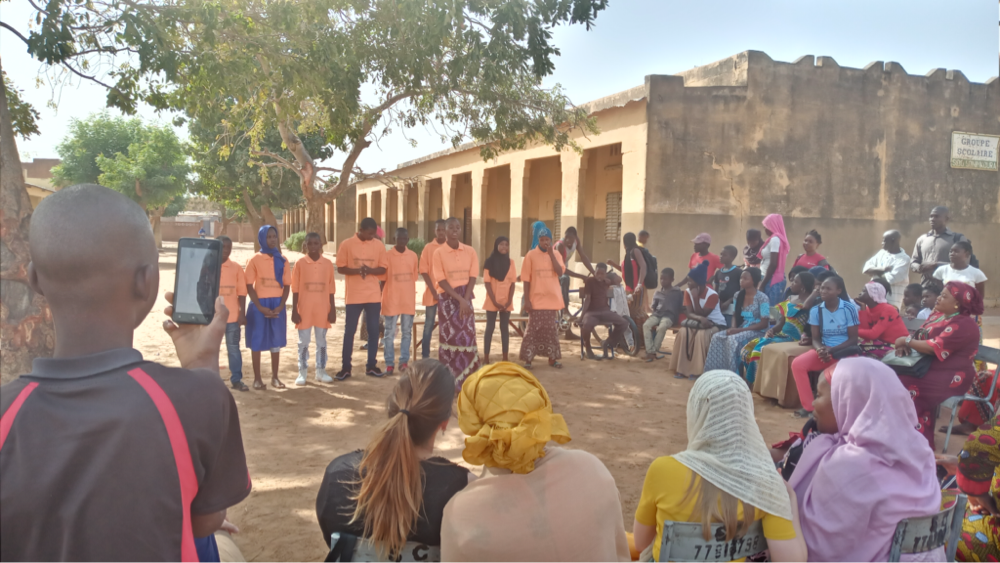
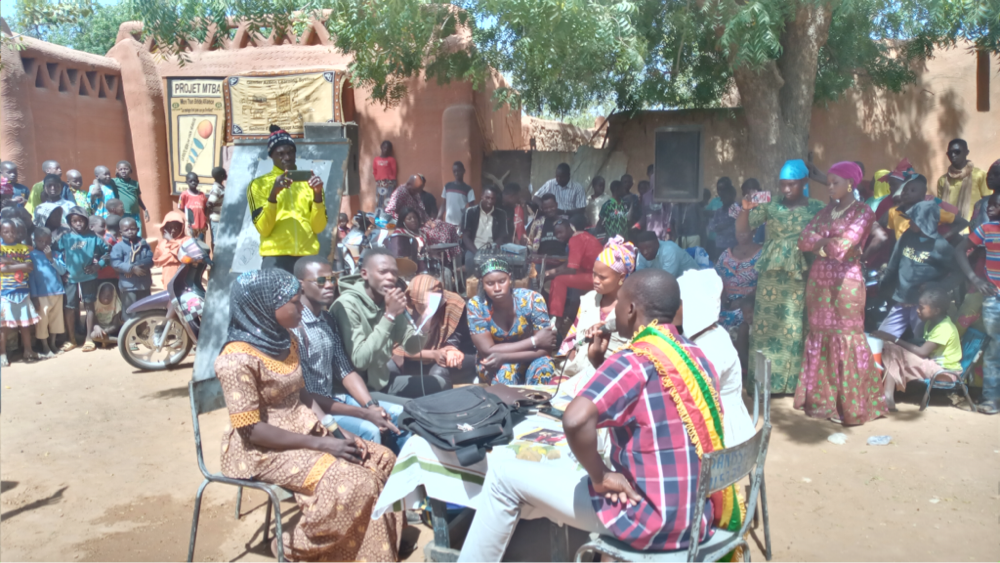
In the afternoon the visit continued with a very lively session led by peer educators at the Sido Sonikoura school .5 girls and 4 boys very eloquent animated a session called “Marriage is not child’s play”, Being Young how to protect oneself from STIs. The session, in Bambara and French, treated types of STI’s, symptoms, transmission and protection. It was followed by an exchange that allowed to understand the leadership that young people have in the implementation of the project, and by using this peer to peer strategy, the impact the project has on life skills. It also touched upon the difficulties they sometimes face being perceived as disruptive, hindering plans of parents who want to marry their children off early.
GALS and popular art combined in a banner
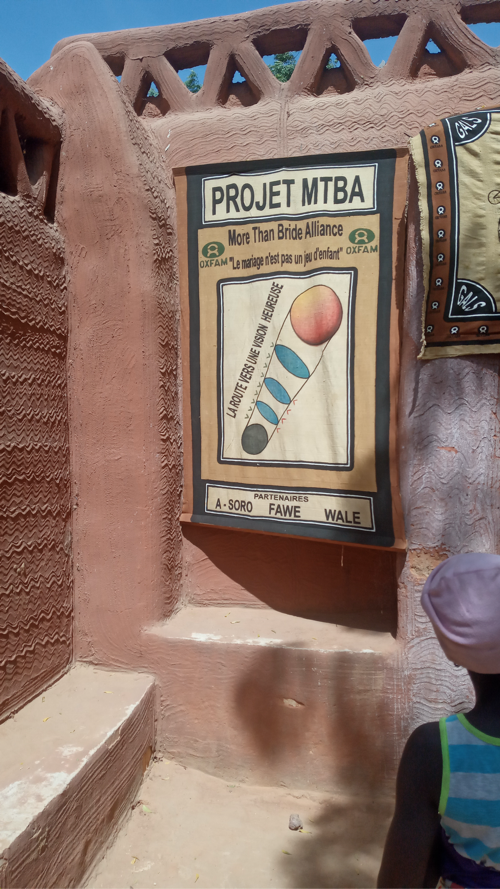
here we have the illustration of a Gals graph:
The GALS happy vision tool that helps communities formulate a vision on a happy life transformed into an artistic expression by local artists. These artists use the local cotton and clods of soil mixed with antibiotic plants called “bassilan yiri” for artistic expressions on cotton for decoration and clothing.
The banner served as a backdrop for the theater on the advocacy of the champions and the Djandjigui folk animation of women. In 2020 the team will continue to combine Gals graphics and SRHR messaging with local arts, integrating popular culture as a means of expression on the rights of women and girls and ending child marriage.
